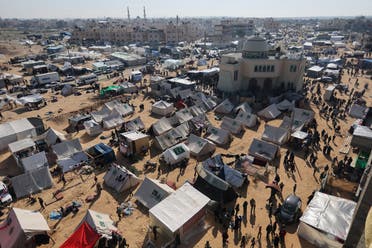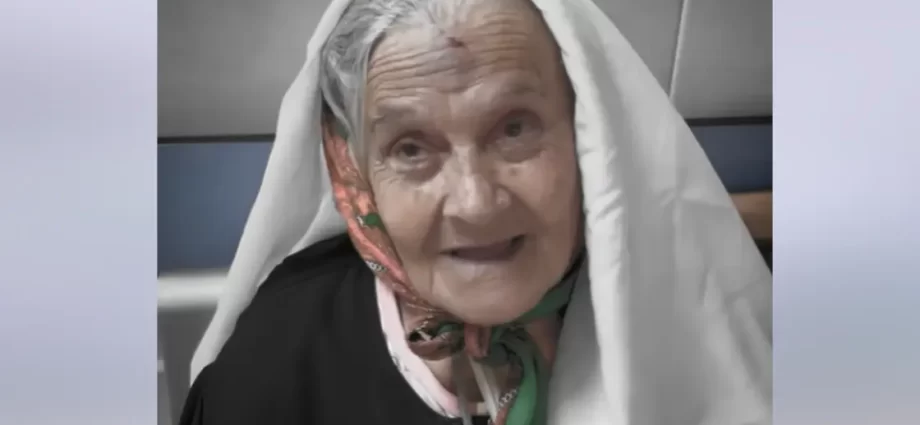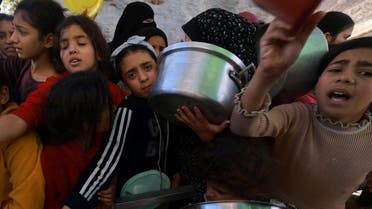Desperation grew Thursday among Palestinians largely cut off from supplies of food and water as Israel continued to prevent the entry of much needed aid into the territory.
Strikes in the southern Gaza town of Rafah, where Israel had previously told Gazans to flee, sowed fear in one of the last places where civilians could seek refuge.
More than 80 percent – about 1.9 million of Gaza’s 2.3 million residents – of the strip’s population have been internally displaced, according to the United Nations.
Israel’s vicious campaign has killed more than 17,100 people in Gaza — 70 percent of them women and children — and wounded more than 46,000, according to the territory’s Health Ministry, which says many others are trapped under rubble.
Thousands of people slept in the cold outside while others sought shelter wherever they can find space.

In central Gaza, residents said that shortages of food and medicine had pushed people to their limits.
Thousands of people pounced on aid trucks the moment they arrived, screaming for food and ripping into packages.
The World Health Organization said there is little to no treatment available for the 14 percent of Gaza’s population suffering from diabetes, high blood pressure and other chronic heart conditions.

“There is no food, there is no drink,” said Etimad Hassan, who sleeps with 21 family members in a small tent in Deir al-Balah.
“We are not animals. Why do they put us in tents like dogs? At least guarantee us a place for shelter,” she said as her voice trembled with rage.
The prices of staple foods have ballooned out of reach, residents said, with a bag of flour now some 450 shekels ($121). Sugar, emptied from supermarkets, goes for about 40 shekels ($10) on the black market.

Rare wartime luxuries savored over the past few weeks — coffee, eggs, biscuits — have vanished altogether. Without cooking gas, Palestinians chop down whatever trees they find for firewood.
Hassan said her husband abruptly stopped taking his blood pressure medication when he ran out during the war, switching to the only similar drug available in a UN center.
Mazen Junaid, who was displaced from Jabaliya, said he spends his days begging for food and scouring pharmacies and health clinics for any anti-inflammatory medication.
He checked five pharmacies on Thursday and returned home empty-handed.
“We didn’t start this war,” he said.
“We are civilians. We have been greatly damaged,” he added.
Two months into the war, Israel’s grinding offensive has triggered renewed international alarm.
The Commissioner-General of the UN agency for Palestinian refugees (UNRWA) on Monday warned that Israel was “repeating horrors from past weeks” by launching a new bombing campaign on the south.
“We have said it repeatedly. We are saying it again. No place is safe in Gaza, whether in the south, or the southwest, whether in Rafah or in any unilaterally so-called ‘safe zone’,” Philippe Lazzarini said in a statement.
He called on Israel to reopen Kerem Shalom and other crossings to facilitate the “unconditional, uninterrupted and meaningful delivery of lifesaving humanitarian assistance,” adding that Israel’s failure to do so “violates international humanitarian law.”


